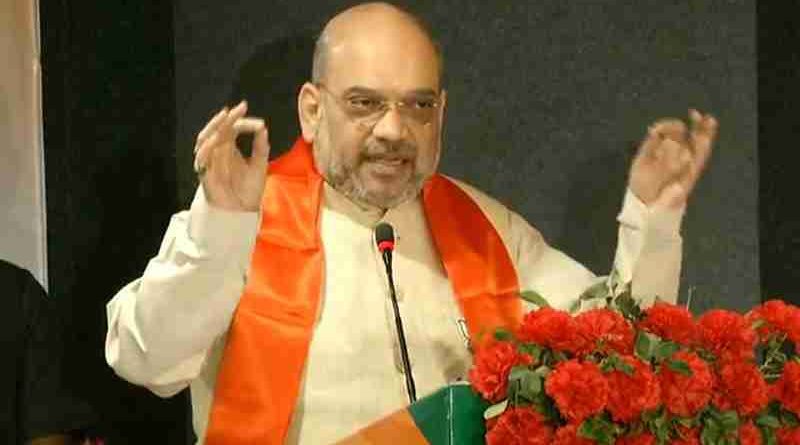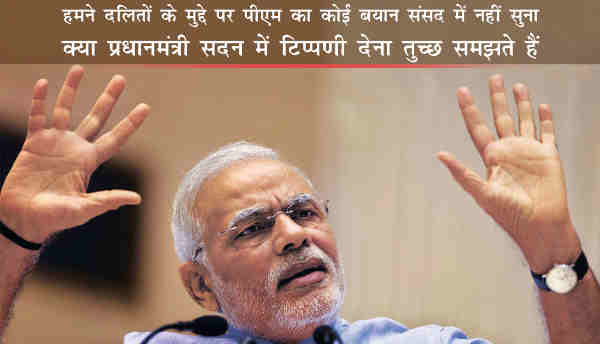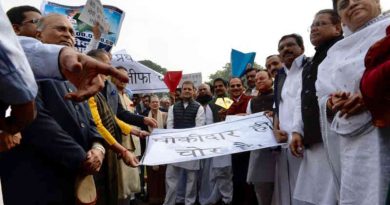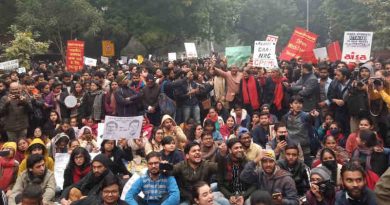Anti-Muslim Citizenship Bill: U.S. Plans to Impose Sanctions on Amit Shah

Anti-Muslim Citizenship Bill: U.S. Plans to Impose Sanctions on Amit Shah
The U.S. Commission on International Religious Freedom (USCIRF) says it is deeply troubled by the passage of the Citizenship (Amendment) Bill (CAB), introduced on Monday (December 9) by India’s Home Minister Amit Shah, in the Lok Sabha (the lower house of the Indian Parliament) given the religion criterion in the bill.
The CAB will now move to the Rajya Sabha (Indian Parliament’s Upper House). If the CAB passes in both houses of parliament, the United States government should consider sanctions against the Home Minister Amit Shah and other principal leadership, USCIRF said in its statement.
The CAB enshrines a pathway to citizenship for immigrants that specifically excludes Muslims, setting a legal criterion for citizenship based on religion. The CAB is a dangerous turn in the wrong direction; it runs counter to India’s rich history of secular pluralism and the Indian Constitution, which guarantees equality before the law regardless of faith, the USCIRF statement said.
India reacted Tuesday through the Ministry of External Affairs (MEA) by saying that USCIRF’s statement is “neither accurate nor warranted.”
Earlier, the USCIRF Report, 2019 revealed deteriorating religious freedom conditions in India where the government headed by Prime Minister (PM) Narendra Modi is engaged in politicization of religion.
The report added that it is increasingly difficult to separate religion and politics in India – a tactic that is sometimes intentional by those who seek to discriminate against and restrict the rights of certain religious communities.
[ Also Read: U.S. Resolution Asks Modi Govt to Protect Religious Freedom of All Residents ]
It further said that Individual Violators Section 212(a)(2)(G) of the Immigration and Nationality Act, a provision added by IRFA (International Religious Freedom Act), makes inadmissible to the United States foreign officials who are responsible for or directly carried out particularly severe religious freedom violations.
In conjunction with the ongoing National Register of Citizens (NRC) process in Assam and nationwide NRC that the Home Minister seeks to propose, USCIRF fears that the Indian government is creating a religious test for Indian citizenship that would strip citizenship from millions of Muslims.
The Lok Sabha first passed the CAB in January 2019, but due to protests, the government withdrew it before it could be voted on by the Rajya Sabha. Both houses of parliament must ratify a bill before it can become law. The BJP included the passage of the CAB as part of its manifesto released ahead of its electoral victory in May 2019.
The U.S. Commission on International Religious Freedom (USCIRF) is an independent, bipartisan federal government entity established by the U.S. Congress to monitor, analyze, and report on threats to religious freedom abroad.
USCIRF makes foreign policy recommendations to the President, the Secretary of State, and Congress intended to deter religious persecution and promote freedom of religion and belief.
💛 Support Independent Journalism
If you find RMN News useful, please consider supporting us.




